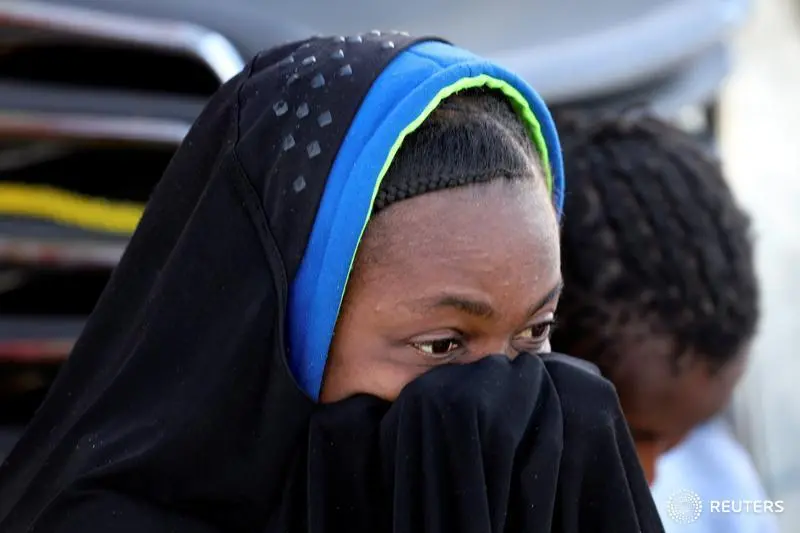PHOTO
We are bombarded daily with images of poor, desperate migrants crossing the Mediterranean Sea in makeshift boats, bodies washed up on shores, concentration camps, and even slave markets in Libya for desperate Africans fleeing poverty and war. Countless studies, speeches by politicians, and press releases by human rights organizations have filled the pages of traditional and new media.
All of this happens, however, without even a hint of an end to this human tragedy, or any concrete results.
According to the UN Refugee Agency, 9,701 refugees reached Europe in the first six weeks of 2018, with 382 dead or missing at sea.
More are expected as the weather improves in the spring and summer. More than a quarter of the arrivals in January are citizens of North African countries.
Over a million arrived in 2015 alone. These numbers are causing deep fears in Europe and stoking the fires of anti-immigration sentiments and the rise of nationalist and populist political parties across the continent.
The simple reality, as many know, is that this crisis will not end, no matter how much money is thrown at it or how many naval ships or security measures Europe takes to stop this stampede for a better life and escape from the poverty, civil war, and oppression that Africa, the Middle East, and North Africa are experiencing.
While the problem is most visible in Europe, it is worldwide — from the US, where President Donald Trump is proposing to build a wall to protect American borders from Mexican immigration; to Turkey, Eastern Europe, and Central Asia, where massive numbers of Syrians and Iraqis are fleeing the instability and war in their countries; to Myanmar, where religious tension has forced hundreds of thousands of Muslims to flee to neighboring countries.
All of this is becoming the highest priority for Europe, the US, and humanitarian agencies all over the world.
Political economists know that the basic equation driving this exodus from Africa into Europe is the most simple one: The law of supply and demand and incentives.
Political economists know that the basic equation driving this exodus from Africa into Europe is the most simple one: The law of supply and demand and incentives.
On the one hand, Europe needs workers and laborers because of its aging population and the availability of low-skill jobs; on the other, there is an excessive supply of labor and a lack of jobs in Africa, along with civil wars and poverty in the originating countries. It is therefore simple to understand why this is happening and why it is unlikely to stop soon.
To tackle this crisis, Europe, and indeed, the rest of the world, must recognize some basic facts.
The modern international political economy is operating in some ways against some of the basic dynamics of human history.
First, it’s facing one of the most basic realities of much of world history, in which all economic inputs, money, goods, and labor were freely moving around the world. Humans have always migrated toward lands that offered them a good livelihood and safety.
Given the rise of the nation state in the past two centuries, allowing money and goods to move freely, as they do today, while restricting people’s movement, works in diametric opposition to natural laws. Second, trying to face and stop this natural phenomenon by using security measures alone will not stop the cracks in the wall of political and economic imbalance.
To have a chance at mending the current nation-state paradigm that the modern world is based on, some measures must be taken to correct this imbalance without waiting until the cracks in the wall cause the whole wall to collapse under the sheer pressure of natural laws.
That means we must devise creative and holistic solutions that embrace politics, economics, security, and humanitarian considerations simultaneously.
Politically, the world should invest heavily in dealing with the increasing phenomenon of collapsing and fragile states, which is becoming more and more common.
It also needs to invest heavily in economic and human development in poor regions and countries, not just by giving them small and ineffective loans, but by increasing direct investment, and with political and public policy reforms.
Improving the lives of people, and fighting poverty with real and concerted efforts, not by press releases and conferences, must be the first steps in figuring out a way for labor and refugees to find legal and legitimate ways to migrate in search of better lives and safety, as nature intended.
One possibility among many is to establish centers for training, job seeking, and the chance to apply for immigration status in the countries immigrants are leaving, in legal and transparent ways.
Another is to offer tax breaks to companies willing to invest in these countries, as the US once did with Mexico, which reduced the number of illegal migrants without the need for President Donald Trump’s infamous wall. If the money being thrown at futile security-based attempts to stop migration were instead invested in these poor countries, we might start to see some real results.
In the words of one of Africa’s most prominent economists and politicians, the former finance and foreign minister of Nigeria, Ngozi Okonjo-Iweala: “Africa needs more investment and trade, not more aid.”
• Hafed Al-Ghwell is a former adviser to the board of directors at the World Bank Group.
Copyright: Arab News © 2018 All rights reserved. Provided by SyndiGate Media Inc. (Syndigate.info).





















